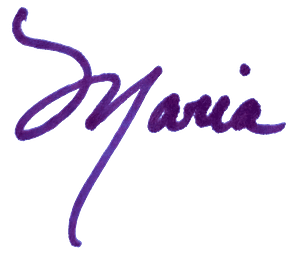
Discover the physical and mental well-being benefits of using meditation apps.
Are you the type of meditator who benefits from a guided session? Or perhaps your current practice feels stagnant, and you are looking to add a new element? Meditation is individual and can be done sitting alone in a quiet space or while out on a run. Look no further you’re your cell phone, the meditation app can help you stay centered for as short or as long as you need. And yes, they can make a difference. This article will highlight apps that cater to what you want to achieve.
Numerous studies have shown the positive effects that meditation apps can have on various aspects of physical and mental health. One study used an app designed for mindfulness training (Walsh et al., 2019). After just three weeks of practice, participants noticed a multitude of benefits.
Benefits of mindfulness app training:
● Improved mood
● Reduced stress
● Improvements in attentional control
● Greater self-acceptance (Walsh et al., 2019)
Meditation, and even meditation apps in particular, has been shown to have many physical and mental benefits. Beginning a meditation practice could be as easy as pushing the download button on your phone. However, this brings up a problem—which app should you choose? The ones listed below are available on both Apple and Android platforms and vary from free to subscription access. Keep reading to find the meditation app that best fits your goals.
Note, I don’t make any commission on any of these products. This information is offered in goodwill.
Popular Meditation Apps
If esthetics, variety, and ease of use are important to you then consider Calm and Headspace. While these apps may be the most popular, they won’t necessarily be the “best” app for everyone. Calm features well-known celebrities and it keeps you motivated to continue your practice whether it’s to start your day or wind down. Headspace offers a free Basics course which offers 10 meditation sessions to get you started. From there you can check out their huge collection of single sessions.
Both apps have been scientifically studied for efficacy, though Headspace has been more thoroughly investigated. A review of studies found that out of 14 studies on the efficacy of Headspace, it did help improve symptoms of depression though results were mixed for outcomes related to mindfulness, well-being, stress, and anxiety. There has only been one study for Calm and therefore there is not as much evidence. (O’Daffer et al., 2022).
Cost: free trial, afterwards 12.99 USD per month or 69.99 USD per year.

For Sleep
Getting adequate amounts of sleep is an essential piece to your overall well-being. Getting 7-8 hours of restful sleep per night has many beneficial functions for your body including enhancing learning and memory, strengthening physical health, and clearing inflammatory neurochemicals that lead to cognitive decline (Z Assefa et al., 2015).
Pzizz is an app customized with three themes: sleep, nap, and focus. The nap setting is helpful because it provides spoken instructions along with sounds and music to help you get some rest. The focus mode plays music designed to boost productivity. The app learns what your preferences are over time and can personalize playlists accordingly. It also has short articles and the positive results from a clinical trial conducted by Indiana State University. There is a powerhouse of qualified psychologists and acoustic specialists that stand behind their work.
Cost: $2.99/week; $7.99/month; $49.99/year
For Anxiety
If you are the type of person who needs to understand why you are doing something before you do it, then head over to the Healthy Minds Innovations. With consistent use, has been shown to have benefits such as reduced distress and increased social connectedness (Goldberg et al., 2020). The program was developed by a neuroscientist in conjunction with the Center for Healthy Minds at the University of Wisconsin-Madison. The program features meditations as well as podcast-style programs to help you develop a healthy mindset. The app is not as stylish as the paid programs but for the price, one can’t be too picky. Research into their app is ongoing so if you have feedback for them, give it.
Cost: free
Sometimes easing feelings of anxiety can start with trying to actively relax your mind and body. Smiling Mind has dedicated programs for a variety of goals such as mindful eating, getting more sleep, or reducing stress. It’s developed by a non-profit composed of psychologists and educators so right from the start you get sense that your well-being is at the center of their mission. This is also a useful resource if you are a parent as the app has dedicated mindfulness and meditation programs for adults as well as children.
Cost: free

For the Adventurous
If you like support pro-level to up & coming creators check out Insight Timer. It is free and features a variety of guided meditations, courses and live workshops that are uploaded by their creators. You can search for the vibe that works your mood in the moment. It’s easy to use and allows you to keep taps of your favorites. Feeling inspired? Make your own recording and offer it on the platform.
Cost: free
Which App Is Best for Me?
The only way to know which meditation app is best for you is to try a few out and look for the results. The key is to notice how you feel before you start and afterwards. If you find that you just don’t like the first app you try, give another one a shot. With time and patience, you will find the app that works best for your lifestyle and goals.
In Sum
Meditation apps have been shown to have many benefits including improved mood, reduced stress, improvements in attentional control, and greater self-acceptance (Walsh et al., 2019). There are a variety of apps targeted toward different needs such as reducing anxiety, helping with sleep, or motivation. With time and patience, you can find an app that helps propel you toward your goals. With regular practice, you could experience many of the benefits meditation apps offer.
References
● Goldberg, S. B., Imhoff-Smith, T., Bolt, D. M., Wilson-Mendenhall, C. D., Dahl, C. J., Davidson, R. J., & Rosenkranz, M. A. (2020). Testing the efficacy of a multicomponent, self-guided, smartphone-based meditation app: Three-armed randomized controlled trial. JMIR Mental Health, 7(11). https://doi.org/10.2196/23825
● O’Daffer, A., Colt, S. F., Wasil, A. R., & Lau, N. (2022). Efficacy and conflicts of interest in randomized controlled trials evaluating headspace and calm apps: Systematic review. JMIR Mental Health, 9(9). https://doi.org/10.2196/40924
● Walsh, K. M., Saab, B. J., & Farb, N. A. S. (2019). Effects of a mindfulness meditation app on subjective well-being: Active randomized controlled trial and experience sampling study. JMIR Mental Health, 6(1). https://doi.org/10.2196/10844
● Z Assefa, S., Diaz-Abad, M., M Wickwire, E., & M Scharf, S. (2015). The Functions of Sleep. AIMS Neuroscience, 2(3), 155–171.s


Author: Maria Morales
I enjoy sharing my love for personal growth through Astrology. I consider myself a perpetual student since I learn more about our marvelous journey with each client I meet.
